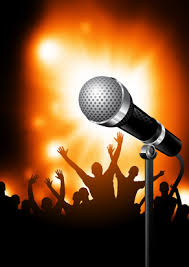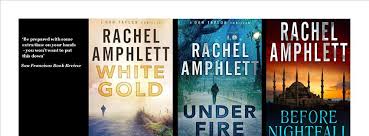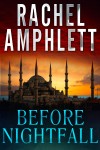 English is the world’s working language. It’s the mother tongue of four hundred million people and it’s secondly-spoken by around a billion. English is the powerhouse in commercial communication, but it’s well behind Chinese and Spanish in cultural conversation.
English is the world’s working language. It’s the mother tongue of four hundred million people and it’s secondly-spoken by around a billion. English is the powerhouse in commercial communication, but it’s well behind Chinese and Spanish in cultural conversation.
You’re obviously conversant in the global language because you’re reading this, but did you know you use two distinct, different languages when you speak English?
 Today’s English is a blend of one-third Germanic Anglo-Saxon and two-thirds of romantic languages like Latin and French. It’s also got a bit of Celtic, Greek, and Norse thrown in.
Today’s English is a blend of one-third Germanic Anglo-Saxon and two-thirds of romantic languages like Latin and French. It’s also got a bit of Celtic, Greek, and Norse thrown in.
In your everyday conversations, whether oral or electronic, you unconsciously switch between the formality of Latin and the folksy tune of words from Germanic roots. It’s like when we want to play, we go off casually – using plain and simple English like the guy in ripped jeans, a hoodie, and Birkenstocks (without socks). When we want to impress, we groom impeccably and display our fine Latin manners. C’mon. We all do that. Or, pray tell, do we not?
So where did this worldwide English language come from? Where’s it at today? And where’s it going in the future?
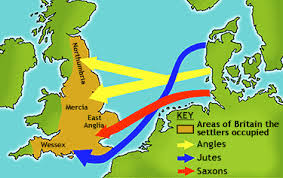 A history lesson shows English began on the British Isles in 400 AD when three Germanic tribes invaded – the Angles, the Saxons, and the Jutes. They pushed the native Celts north and west into Scotland and Ireland, then took the place for themselves calling it ‘Englaland’ with their language being ‘Englisc’.
A history lesson shows English began on the British Isles in 400 AD when three Germanic tribes invaded – the Angles, the Saxons, and the Jutes. They pushed the native Celts north and west into Scotland and Ireland, then took the place for themselves calling it ‘Englaland’ with their language being ‘Englisc’.
Current English evolved over four phases.
Old English (450-1100 AD) didn’t look or sound much like how we talk today. We’d have a tough time understanding the flow, however half of our modern words are derived from Old English. Words like earth, wind, fire, water, and flow. Beowulf is a famous poem written in Old English. I don’t understand a word of it and I’m sure King Arthur and I’d have a rough go at debating.
 Middle English (1100-1500) came about when the Normans showed up in 1066, making a form of French the voice of England’s Royal Court. The higher class spoke French and the lower class spoke English.
Middle English (1100-1500) came about when the Normans showed up in 1066, making a form of French the voice of England’s Royal Court. The higher class spoke French and the lower class spoke English.
Early Modern English (1500-1800) was the stuff of Shakespeare. It was also the age of the Renaissance when England was expanding and coming into contact with foreign languages. Publishing was growing. The masses were beginning to read and write. And dictionaries were available.
Late Modern English (1800 – Present) has a larger vocabulary and different delivery. You can thank the Industrial Revolution and also, at one point, the British Empire covered much of the civilized world, naturally adopting words and phrases form other cultures.
English is categorized in three circles which builds a cohesive global language.
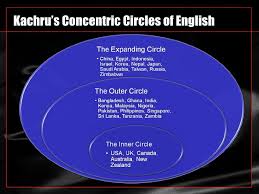 The inner circle is those with English as their mother tongue. Britain, USA, Canada, Australia, New Zealand, Ireland, and South Africa are the main players. English is handed down from generations within the inner circle and form the base who relay it to the rest of the world.
The inner circle is those with English as their mother tongue. Britain, USA, Canada, Australia, New Zealand, Ireland, and South Africa are the main players. English is handed down from generations within the inner circle and form the base who relay it to the rest of the world.
In the middle circle are English Second Language (ESL) speakers. There could be up to a billion, depending on how proficiency is defined. The Philippines is a good example. So are India, Pakistan, Singapore, Jamaica, and Nigeria.
The outer circle contains a vastly expanding populace who converse using English as a common tool. Today’s interconnected society relies on a communication standard and for many reasons that’s become English. It’s the international language at the United Nations, in treaties, in aviation, marine, medicine, science, and internet technology.
 Where I’m going with this – the blog you’re reading, ww.DyingWords.net, is a snapshot of how English is communicated in today’s global market. I started DyingWords three years ago because I wanted to provoke thoughts on life, death, and writing. I had something to say and I used the English language structure to convey it. It’s the only language I know, so I was pretty much stuck with it.
Where I’m going with this – the blog you’re reading, ww.DyingWords.net, is a snapshot of how English is communicated in today’s global market. I started DyingWords three years ago because I wanted to provoke thoughts on life, death, and writing. I had something to say and I used the English language structure to convey it. It’s the only language I know, so I was pretty much stuck with it.
In three years, DyingWords experienced steady growth and I want to share this snapshot with you about global communication.
 I use Google Analytics to track traffic to my WordPress website. I surveyed a three day period – July 28/29/30, 2015 – which showed 2,778 visitors to the site. 12.3% were returning folk and 87.7% were new.
I use Google Analytics to track traffic to my WordPress website. I surveyed a three day period – July 28/29/30, 2015 – which showed 2,778 visitors to the site. 12.3% were returning folk and 87.7% were new.
Google Analytics tells you fascinating things about who’s looking at your site. I’ll drill down. Here’s DyingWords visitor demographics:
Top 10 Countries By Visitor
- USA – 1392
- Canada – 435
- United Kingdom – 200
- Russia – 186
- Australia – 93
- China – 65
- India – 57
- Kenya – 54
- Netherlands – 43
- South Africia – 41
Top 10 Cities by Visitor
- New York – 93 (Almost all agents and publishers 😉
- Vancouver – 82
- London – 56
- Nanaimo – 55 (Most of that’s me lurking my own site)
- Los Angeles – 54
- Calgary – 41
- Toronto – 36
- Chicago – 31
- Melbourne – 26
- Sydney – 22
Google goes deeper. It looks at language settings on visitor profiles.
English (US Version) 56.7%
English (UK Version) 9.4%
English (Canadian) 1.7%
English (Australia) 0.5%
Other Languages 31.7%
Wow! One-third of visitors to DyingWords are not first language English speakers.
So who are the unknown visitors?
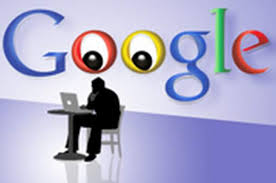 Here’s something else Google shocked me with. My website mailing list and personal contacts says my core audience is mostly upper middle-aged, educated, English-speaking women. But my mailing list and Google traffic are two entirely different things. The email list is permission marketing and Google refects wide open drop-ins. The search engines say something different about who’s knockin’.
Here’s something else Google shocked me with. My website mailing list and personal contacts says my core audience is mostly upper middle-aged, educated, English-speaking women. But my mailing list and Google traffic are two entirely different things. The email list is permission marketing and Google refects wide open drop-ins. The search engines say something different about who’s knockin’.
Age Of Visitors
18 – 24 27.5%
25 – 34 33.5%
35 – 44 15.5%
45 – 54 12.5%
55 – 64 5.5%
65 + 5.5%
And what blew-me was gender profile.
Female 45.85%
Male 54.15%
 I’m getting the picture there’s a lot of young, ESL men finding my website and I never mention the “- orn” word, so it can’t be a search generated from that keyword set in a post or buried in metadata. I think they might be searching to improve their English.
I’m getting the picture there’s a lot of young, ESL men finding my website and I never mention the “- orn” word, so it can’t be a search generated from that keyword set in a post or buried in metadata. I think they might be searching to improve their English.
DyingWords found a global English language market and my Alexa Ranking shows it. If you don’t know, Alexa is an Amazon product that ranks your website exposure among a billion other websites on the planet. Today, August 1st, 2015, DyingWords is Alexa ranked at 2,940,467 – rising 442,954 positions in the past three months. That’s a 15% increase and puts it in the top 0.3% if you use the billion benchmark number of recorded name domains. Even if you use the disclaimer that 75% of websites are inactive, DyingWords is still in the top 11.8%. I’m good with that because it helps people connect in English.





